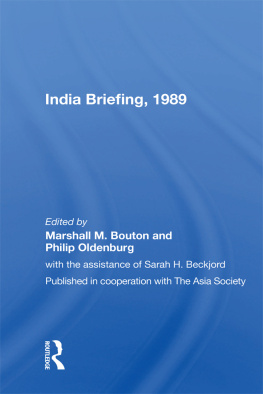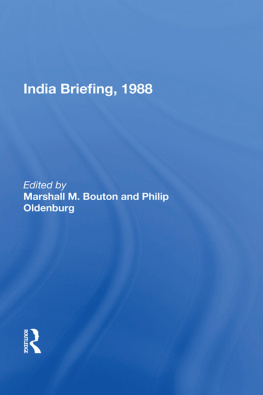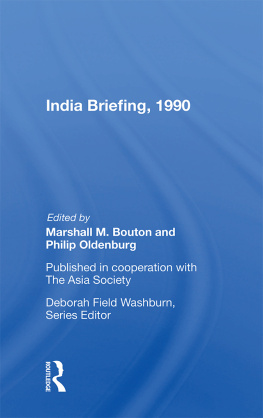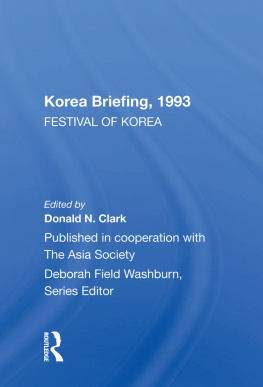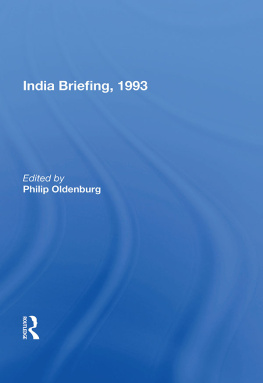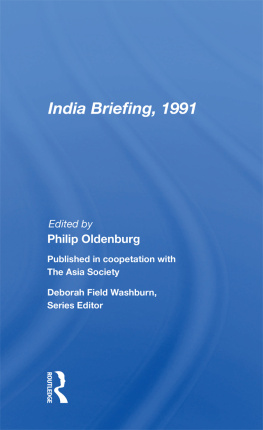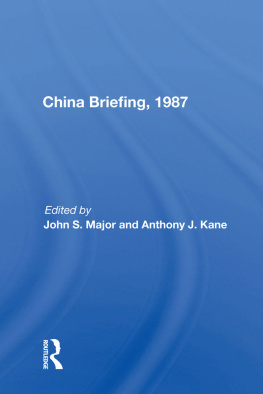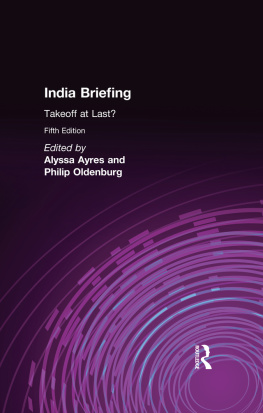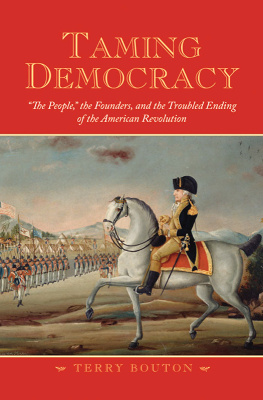India Briefing, 1987
About the Book and Editor
This annual review of major events, issues, and trends in Indian affairs presents an authoritative and insightful assessment of India in 1986. Interpretive essays illuminate the causes and consequences of a tumultuous year, as leading specialists discuss Indian politics, economy, society, culture, and foreign relations. The contributors examine such important developments as the breakdown of the Punjab accord, the resurgence of militant communalism, Prime Minister Rajiv Gandhi's faltering leadership, the dramatic heightening of Indo-Pakistan tensions, the growing resistance to economic reforms, and the impact of the video revolution on Indian culture.
Filling an important gap in the literature on contemporary Indian affairs, this book will be invaluable for students and scholars of South Asia as well as for journalists, policymakers, businesspeople, and serious travelers who wish to understand current and future developments in India.
Marshall M. Bouton is director of the contemporary affairs department of The Asia Society. He is the author of Agrarian Radicalism in South India (1985).
India Briefing, 1987
edited by
Marshall M. Bouton
Published in cooperation with The Asia Society
First published 1987 by Westview Press
Published 2018 by Routledge
52 Vanderbilt Avenue, New York, NY 10017
2 Park Square, Milton Park, Abingdon, Oxon OX14 4RN
Routledge is an imprint of the Taylor & Francis Group, an informa business
Copyright 1987 by The Asia Society
All rights reserved. No part of this book may be reprinted or reproduced or utilised in any form or by any electronic, mechanical, or other means, now known or hereafter invented, including photocopying and recording, or in any information storage or retrieval system, without permission in writing from the publishers.
Notice:
Product or corporate names may be trademarks or registered trademarks, and are used only for identification and explanation without intent to infringe.
Library of Congress ISSN: 0894-5136
ISBN 13: 978-0-367-00546-7 (hbk)
The last few years have been a time of almost dizzying change for India. The escalation of the Punjab crisis and the death of Indira Gandhi in 1984, Rajiv Gandhi's coming to power and his efforts at political and economic reform in 1985, the faltering of these reforms and of his leadership, as well as heightened tensions in India's foreign relations during 1986all these developments have reminded the world of the magnitude and complexity of India's problems and potential. At the same time such changes occur amidst certain constants: the diversity and yet inherent stability of Indian society, the richness of Indian culture, the size and sheer momentum of India's economy, and India's international roles.
Despite the importance of India's changes and continuities to Americans and others, no single publication has provided a comprehensive annual analysis of recent developments and issues in Indian affairs. The insights of scholars and other specialists into Indian politics, economy, society, culture and foreign relations have not been regularly available in a form appropriate to a general readership.
India Briefing 1987 is intended to fill this gap in publications on India. It is the first volume in what we expect will be an annual series, The purpose is to provide an authoritative, timely and readable assessment of events and trends in India during the previous calendar year, in this case 1986, We hope that India Briefing 1987 and future volumes will be of interest to policy-makers and analysts, business people, journalists and serious travellers, as well as students and scholars. From year to year certain topics will be singled out for closer examination, such as religion and politics in India Briefing 1987. But India Briefing will also continue to be quite broad in its coverage, dealing each year with all the major topics in Indian affairs.
The publication of India Briefing 1987 is a collaborative project of The Asia Society and Westview Press. The Society and Westview have jointly published China Briefing for several years, the success of which led us to decide to undertake India Briefing. The Asia Society is grateful to Westview and particularly to Fred Praeger and Susan McEachern for their interest in expanding the collaboration of the two organizations.
Several individuals helped make India Briefing 1987 possible. I am particularly grateful to Owen M. Crowley whose skills, hard work and initiative were critical to every phase of this publication. His command of the research, editing and production requirements was always impressive. I am also deeply indebted to Lorri Kaye who very skillfully and conscientiously transformed the contributions into a manuscript. Valuable assistance was provided as well by Chip Gagnon, Man Maruyama and Eileen D. Chang. Whatever errors or omissions remain are the responsibility of the editor.
Marshall M. Bouton
The Asia Society
19 June 1987


1
Rajiv Gandhi: A Mid-Term Assessment
Myron Weiner
To the acclaim of India's middle class and much of the world's media, Rajiv Gandhi in his first year as prime minister set forth a new agenda for India: to embark on a new economic policy that would accelerate India's industrialization and economic modernization, to reconcile the concerns of India's restive linguistic, religious and tribal communities with the need for national integration, and to improve relations with India's regional neighbors. By his second year in office the economic reforms, though accompanied by signs of economic growth, were faltering, conflicts among ethnic communities showed no signs of abating and India's relations with her neighbors had deteriorated. Worse yet for a political leader, the governing Congress party, which had triumphed in parliamentary elections in December 1984 and state assembly elections a few months later, had lost assembly elections in five states, Assam, Kerala, Mizoram, Punjab and West Bengal, and had maintained a foothold in state elections in Kashmir and Jammu only by allying itself with a popular regional leader. Rajiv Gandhi's hold on his own party, on the bureaucracy, on the middle class that had initially embraced him and on the electorate had plummeted; his own future and that of his party for the parliamentary elections in 1989 were now clouded, and the agenda he had set for the nation seemed to be going nowhere.
To what extent this rapid political descent was the result of Rajiv Gandhi's failure to demonstrate leadership skills, or whether the Indian situation and system makes leadership initiative increasingly difficult and uncertain is a central issue in assessing whether a political recovery is possible and, more broadly, whether major reforms in the near future are likely. To answer this question we need to examine how Rajiv Gandhi became prime minister, how he set about seeking to carry through his agenda, what were the challenges to his leadership and what qualities he brought to bear to deal with these challenges.







